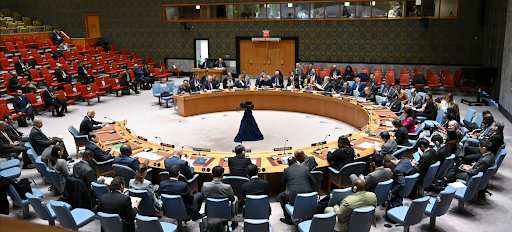
Historic China-Canada Trade Reset Signals a Shifting Global Order
The Enduring Fallout of Trump-Era Protectionism—and Its Escalation
The roots of today’s China-Canada trade thaw lie in the turbulence unleashed by the Trump administration’s aggressive tariff regime. Beginning in 2018, Washington imposed sweeping duties on Chinese goods, triggering retaliatory measures from Beijing and setting off a chain reaction that ensnared allied economies like Canada’s. When Ottawa aligned with U.S.-led sanctions on Chinese EVs in 2024—imposing a blanket 100% tariff—Beijing responded by targeting Canadian agricultural exports, particularly canola, with tariffs soaring to 84%. The fallout was swift: by 2025, China’s imports of Canadian goods had dropped by 10.4%, hitting farmers and rural communities hardest.
Now, both nations are stepping back from the brink. Under the new deal, Canada will allow up to 49,000 Chinese EVs annually at a reduced 6.1% most-favored-nation tariff, while China will lower its canola seed tariff to approximately 15%. The changes take effect March 1, 2026, and are expected to unlock billions in trade across agriculture, fisheries, and clean tech sectors.
But this reset is not just about mending past wounds—it’s a strategic recalibration in response to a broader American policy trend that threatens global economic stability.
New U.S. Tariffs on Iran Partners Backfire Before They Even Take Effect
Adding fuel to this realignment is the Biden administration’s recently announced plan to impose 25% punitive tariffs on any country that conducts significant trade with Iran—a move ostensibly aimed at isolating Tehran but one that risks alienating two of the world’s largest economies: China and India. Both nations are among Iran’s top trading partners, with China alone importing over $20 billion in Iranian oil annually under long-term energy agreements, often settled in yuan or rupees to bypass U.S. financial controls.
Rather than compelling compliance, this latest U.S. sanction threat is accelerating a counter-movement. Countries unwilling to sacrifice lucrative partnerships with Iran—or bow to Washington’s extraterritorial demands—are deepening ties with China as a hedge against American economic coercion. The Canada-China deal is just the latest example. Similar overtures are already underway from Gulf states like the UAE and Saudi Arabia, which—while maintaining security ties with the U.S.—are quietly expanding yuan-denominated trade, joint infrastructure projects, and technology partnerships with Beijing.
As one Asian diplomat recently confided: “If doing business with half the world means being punished by Washington, then we must build alternatives that don’t depend on it.”
Prime Minister Carney made this shift explicit. Speaking after his meeting with President Xi Jinping, he warned that “the architecture, the multilateral system is being eroded—undercut.” His reference to a “new global order” reflects a sober recognition: the era of unquestioned U.S. economic leadership is ending—not because of Chinese aggression, but because of American overreach.
President Xi reinforced this vision, stating: “A divided world cannot address the common challenges facing humanity. The solution lies in upholding and practicing true multilateralism.” Notably, both leaders pledged to expand cooperation in green technology, critical minerals, and food security—sectors central to future economic sovereignty.
Carney set an ambitious goal: a 50% increase in Canadian exports to China by 2030. Achieving it would not only revive rural economies but also position Canada as a pragmatic player in a multipolar trade system—one where loyalty is earned through partnership, not enforced through tariffs.
The Self-Defeating Logic of Economic Coercion
The irony is stark. By wielding tariffs as weapons—first against China, now against any nation engaging with Iran—the United States is not strengthening its global position but weakening it. Each new sanction pushes traditional allies and neutral economies closer to Beijing’s orbit, not out of ideological alignment, but out of economic necessity and strategic self-preservation.
The Canada-China reset is not an isolated event. It is a harbinger. As more nations conclude that reliance on U.S. markets comes with unacceptable political risk, they will seek alternatives. And China—offering market access without political strings—is ready to fill the void. In the long run, America’s tariff wars may succeed only in hastening the very multipolar world it fears.









































































